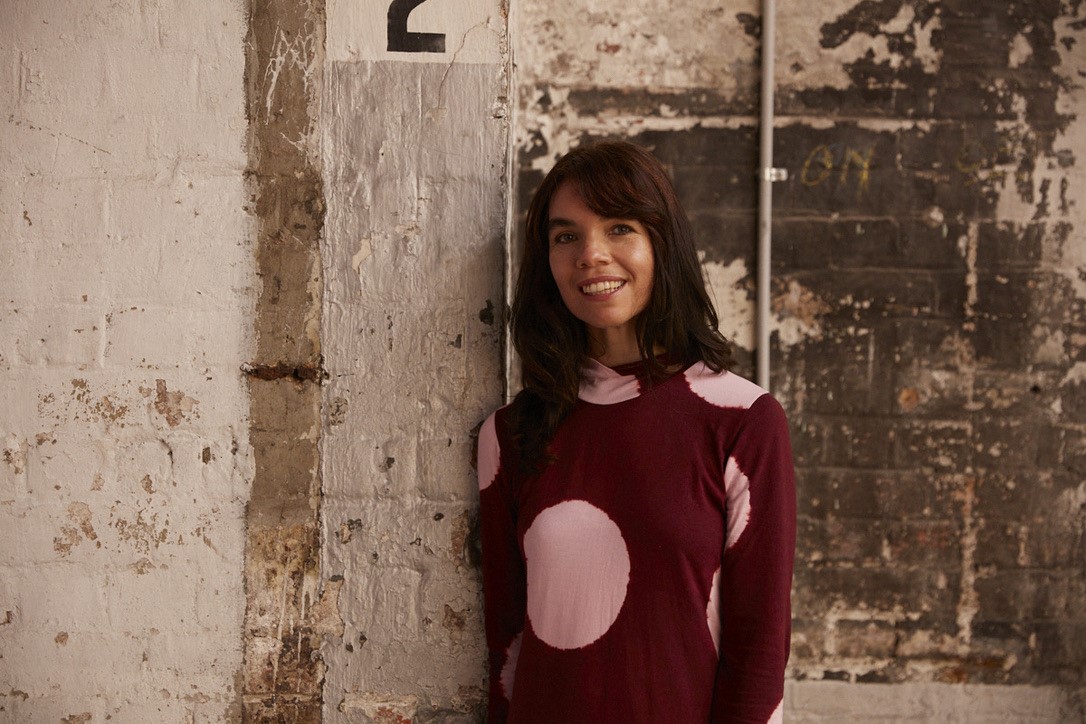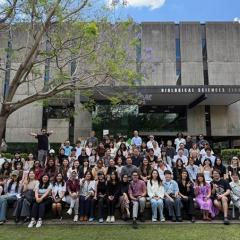The School is thrilled to profile the exceptional achievements of Freja Carmichael, a talented UQ PhD candidate in Art History, arts worker, curator, and Ngugi woman belonging to the Quandamooka People of Moreton Bay. With a passion for collaborative curatorial approaches and a dedication to promoting and documenting First Peoples' fibre practices, Freja has made significant contributions to the Australian art world.

Over the past decade, Freja has immersed herself in working alongside First Nation artists, communities, art centres, and national and international art organisations. Her extensive experience includes curating exhibitions, engaging in research and writing projects, all aimed at elevating and celebrating the rich artistic traditions and cultural expressions of First Peoples.
One of her most recent achievements was being invited to co-curate The National 4: Australian Art Now, solidifying her position as an influential figure within the Australian art scene. The National, since its inaugural edition in 2017, has provided a biennial platform for partnering institutions to present the latest ideas and diverse forms of contemporary Australian art. The latest edition, The National 4, is a remarkable showcase of new works from artists across country, spanning different generations and cultural backgrounds.
When asked about the most rewarding aspect of her involvement in The National 4, Freja said, “highlights for me were gaining deeper insights into artists’ practices and engaging in their ideas and continuing and forming new relationships.”
Freja’s passion for working in the art world stems from her own family background. Freja’s mother, Sonja Carmichael, recently completed her Master of Philosophy in Art History at UQ in a ground-breaking practice-led research project in regenerating Quandamooka weaving.
This heritage, alongside her passion for art, has inspired Freja to create spaces for First Nations artists, promote collaborative curatorial approaches, and ensure the sharing and preservation of First Peoples' fibre practices. Her commitment to uplifting Indigenous art forms was further shaped by her participation in community projects early in her career and her selection as an inaugural participant in the prestigious Wesfarmers Indigenous Arts Leadership Program at the National Gallery of Australia. These experiences led her to pursue a Master's degree in Museum Studies at UQ in 2015, before embarking on her research higher degree studies.
Freja’s PhD advisor, Associate Professor Sally Butler says, “Freja’s research project is part of a vanguard of Indigenous curator/researchers working across the country who help advance recognition and deeper understanding of the intellectual and cultural leadership of Indigenous arts”.
Reflecting on her return to UQ to pursue her PhD Freja says, “highlights have been meeting new people across all areas of UQ, the exciting programming and exhibitions at UQ Art Museum (that I can visit at lunch), and community events organised by the ATSIS unit.”
For students aspiring to work in the art world, Freja offers invaluable advice: “immerse yourself in art, visit exhibitions, and embrace opportunities that come your way.” By engaging actively with the artistic community and saying yes to new experiences, aspiring art professionals can broaden their horizons and embark on a rewarding career journey.
The School cannot wait to see what else Freja will achieve in her career.



